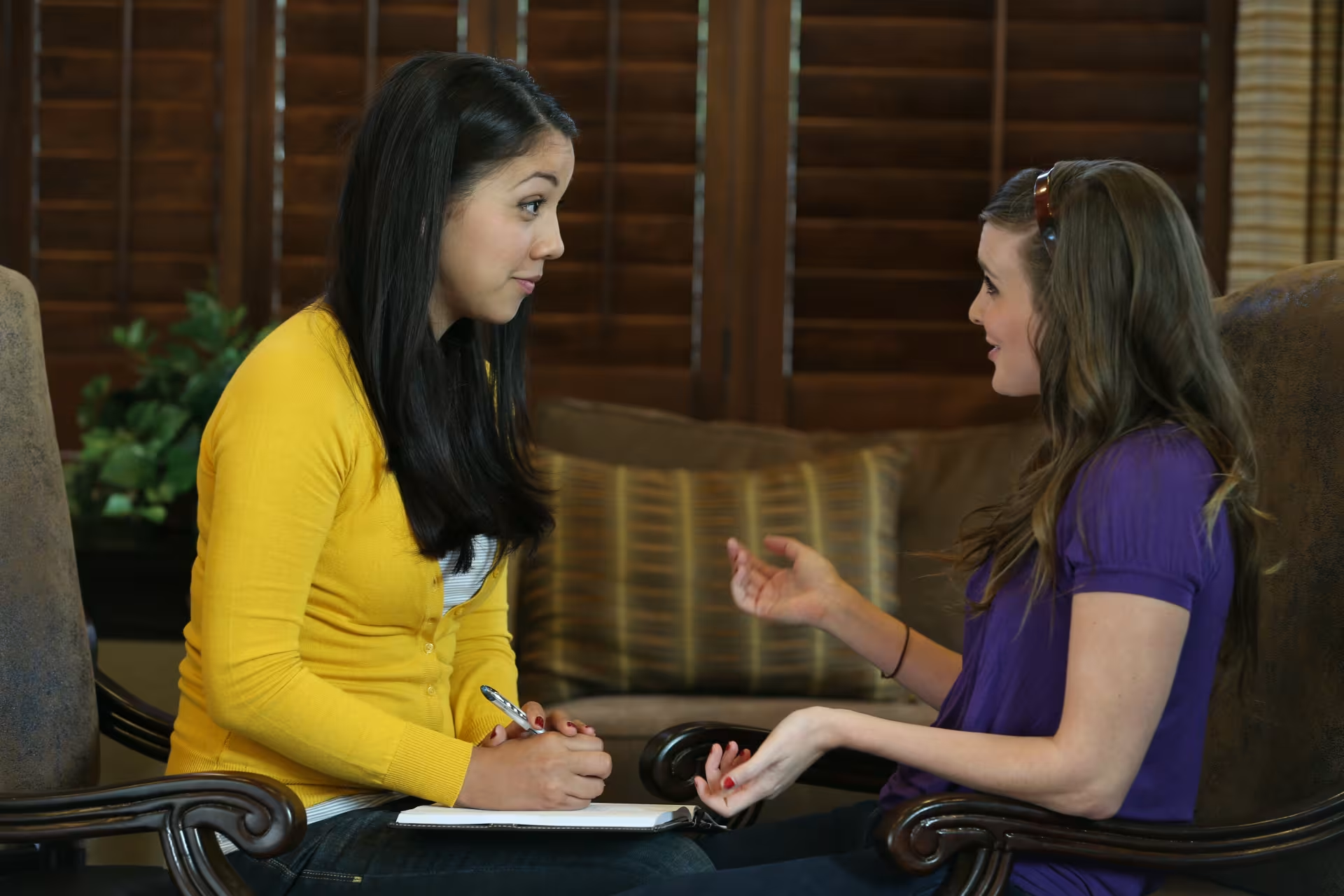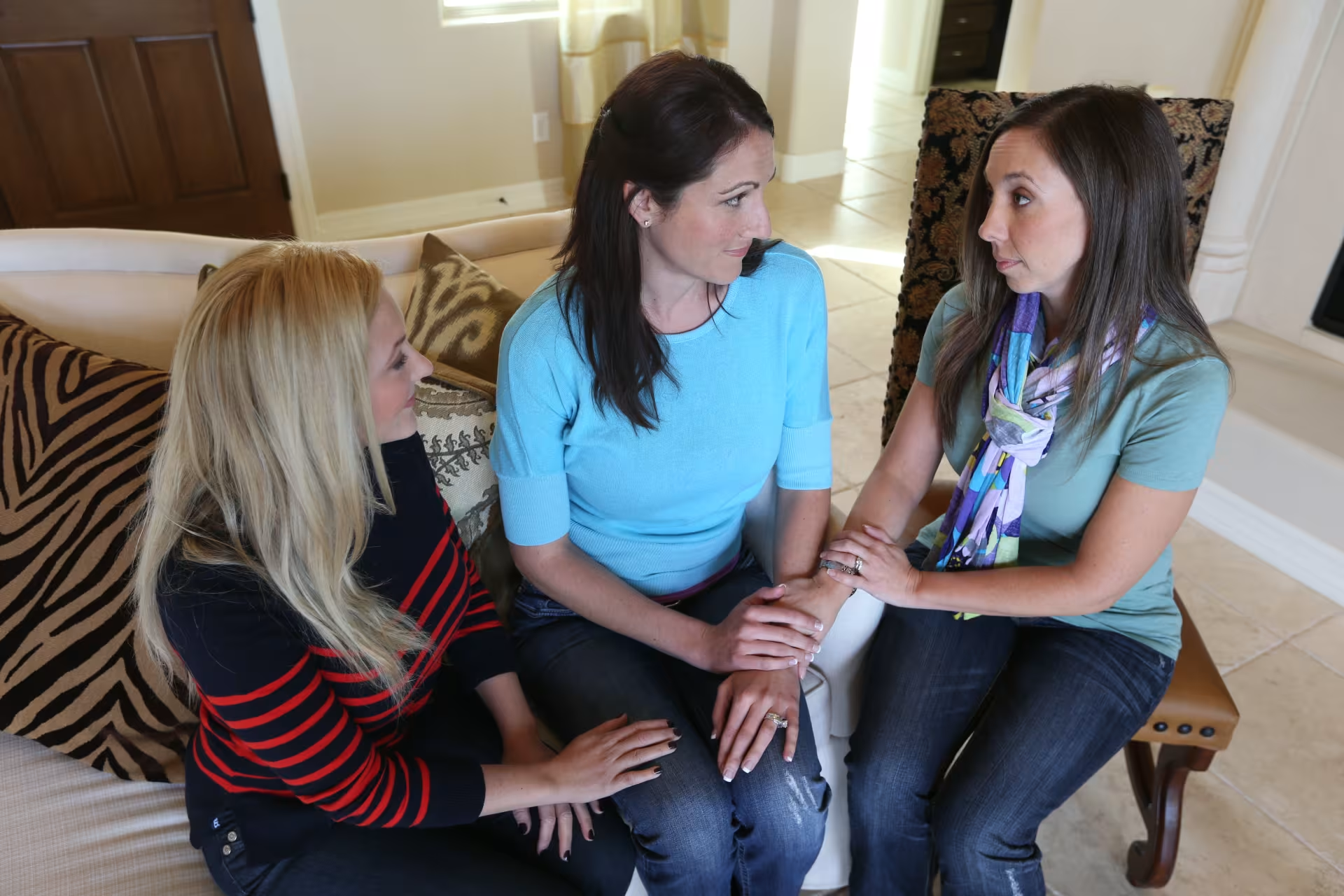
Online MS in Clinical Mental Health Counseling: Marriage and Family Therapy (MFT) Emphasis
Help Families Resolve Conflict With an MFT Emphasis
No matter how close a family is, life will always have its ups and downs. As an aspiring marriage and family therapist, you can make it your life’s work to help couples and families overcome obstacles and live harmoniously. The Master of Science in Clinical Mental Health Counseling with an Emphasis in Marriage and Family Therapy at Grand Canyon University focuses on family dynamics, parent-child relationships and issues that affect couples.
Offered by the College of Humanities and Social Sciences, the MFT courses offered through this emphasis will give you the opportunity to proactively plan the direction of your desired career. You will be given the tools to provide individual, couple and family counseling within a carefully structured environment that inspires a sense of security.
9,100 new jobs are estimated to open for marriage and family therapists from 2021 to 2031, according to the U.S. Bureau of Labor Statistics.(See disclaimer 1)
The coursework in this program is non-transferable from other institutions.
Credits: Fill out the Lopes Eval to find out what will transfer
Admission Requirements (Master's)
- Undergraduate Degree*
- 2.8+ GPA
OR 2.5+ Unweighted GPA and
- GMAT: 500
- GRE: 300 combined**
Admission requirements may differ based on degree level, program and modality, or transfer status. Some programs of study may require a higher GPA and/or other qualifying criteria for admission. Please review full admission and program requirements in the University Policy Handbook.
* Degree must be from an accredited college or program that has been approved by GCU.
** Combined verbal/quantitative, after August 2011 (1,000 combined verbal and quantitative, prior to August 2011).
Take a Compassionate Approach to Marriage and Family Therapy
Graduates with an MS in Clinical Mental Health Counseling degree focused on MFT can take a family-oriented approach to assessing, diagnosing and treating mental, emotional, behavioral and interpersonal issues. Counselors specializing in MFT are professionals with an in-depth understanding of psychotherapy and family systems. As a student at GCU, you can be inspired to develop your understanding of the Christian worldview and faith-based ethics as you study the curriculum. Future counselors are encouraged to adopt a compassionate and empathetic approach to counseling while maintaining professional boundaries.
Earn Your Master’s in Clinical Mental Health Counseling Online
Designed to help working professionals earn their advanced counseling degree, this master’s program offers online MFT courses or evening classes for added flexibility and convenience. The MFT online emphasis is available through our online learning where you have access to knowledgeable faculty in the counseling field, as well as online learning resources. As a student in this program, you will also have the opportunity to gain hands-on experience through supervised field experiences.
MFT Courses Allow You To Work Toward Family and Marriage Licensure
The marriage and family therapy courses in this master’s program examine the complex dynamics of families and couples. The coursework begins by covering the fundamentals of the theories and models of counseling. Other early topics of study include the ethical and legal considerations of professional counseling.
This program’s courses were selected to fit the requirements of the Certified Clinical Mental Health Counselor (CCMHC) credential, the National Certified Counselor (NCC) credential and the Arizona Board of Behavioral Health Examiners.
Advanced coursework teaches the following core competencies:
The stages, processes and effects of substance use disorders
The counselor’s role in prevention, intervention and recovery
The structure and dynamics of the family
Assessments and methods of marital and family intervention and counseling
The biopsychosocial perspectives of family and family systems
The foundational development of marriage and family therapy
Approaches to working with diverse family systems
Multicultural, blended, adoptive, separated and single-parent families
Career Paths With an MS in Clinical Mental Health Counseling MFT Emphasis
In the field of counseling, each day is unique, given that counselors often engage with a diverse range of clients, each facing their own distinct challenges and circumstances. Marriage and family specialists may help clients cope with difficult issues like infidelity, chronic stress, divorce and financial stressors.
Some marriage and family counselors work in private practice and/or the following settings:(See disclaimer 2)
Hospitals and clinics
Social service agencies
Mental health centers
Substance abuse treatment centers
Marriage and Family Licensure Information
Completion of this master’s in clinical mental health counseling degree program does not lead to marriage and family licensure. However, it does meet the academic requirements for licensure in Arizona as a Licensed Associate Counselor (LAC) and Licensed Professional Counselor (LPC). It’s recommended that you review the requirements for licensure in other states as needed, as well as the licensure requirements for marriage and family boards.
CACREP Accreditation
GCU’s Master of Science in Clinical Mental Health Counseling program is accredited by the Council for Accreditation of Counseling and Related Educational Programs (CACREP). For more information, visit the College of Humanities and Social Sciences accreditation page.

Frequently Asked Questions
Read through our answers to these frequently asked questions about marriage and family therapy courses and earning your degree in clinical mental health counseling.
How long does it take to earn a master’s in clinical mental counseling with an MFT emphasis?
How do I become an LMFT after the MS in Clinical Mental Health Counseling: MFT emphasis?
What is the difference between mental health counseling and marriage and family therapy?
Program Curriculum
Core Courses

Are you ready to get started on your MFT career path? Complete the form on this page to get the information you need from our helpful university counselors.
- COVID-19 has adversely affected the global economy and data from 2020 and 2021 may be atypical compared to prior years. The pandemic may impact the predicted future workforce outcomes indicated by the U.S. Bureau of Labor Statistics as well. Accordingly, data shown is effective September 2022, which can be found here: U.S. Bureau of Labor Statistics, Occupational Outlook Handbook, Marriage and Family Therapists, retrieved June 21, 2023.
- U.S. Bureau of Labor Statistics. (2022, Sept 8). Marriage and Family Therapists: Work Environment. Retrieved June 21, 2023.
- U.S. Bureau of Labor Statistics. (2022, Sept 8). How To Become a Marriage and Family Therapist. Retrieved June 21, 2023.



